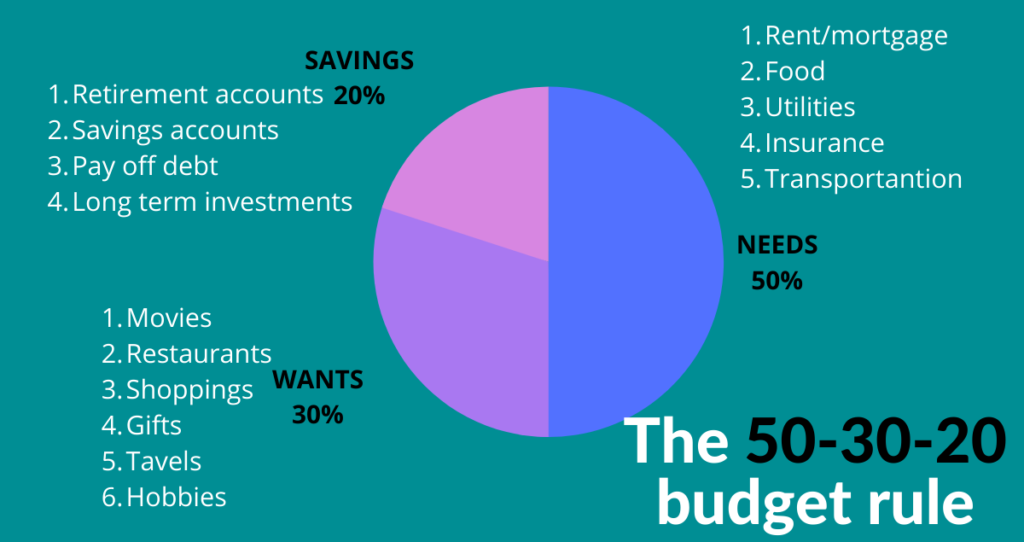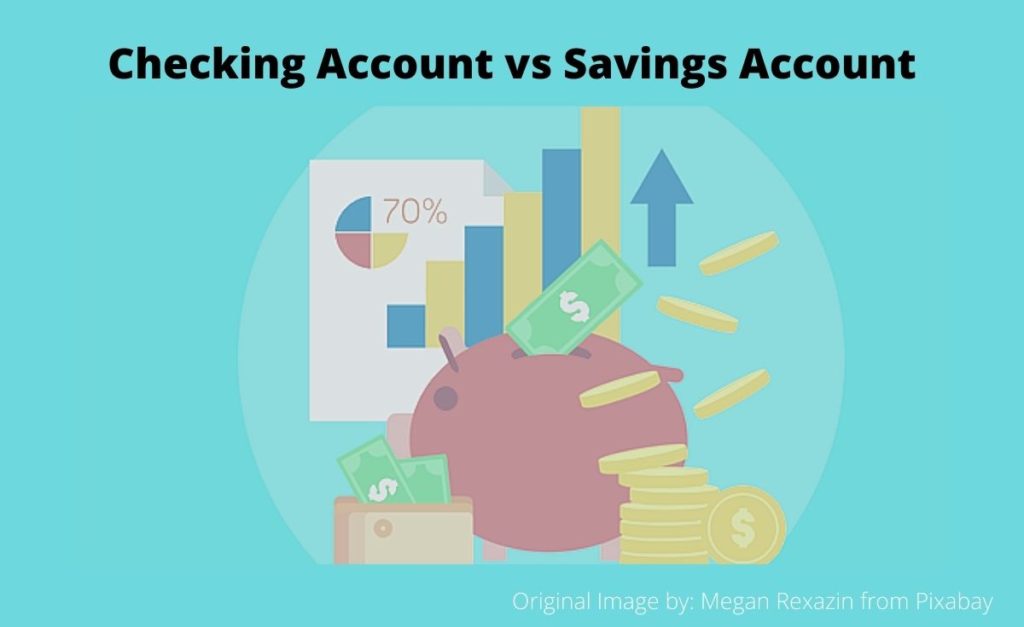If you’re looking for a smart and secure way to grow your money without a lot of risk, a certificate of deposit (CD) could be the perfect choice. CDs come with low-riks and are insured by FDIC and NCUA just like savings accounts and money market accounts. What makes them superior is that they come with relatively higher interest rates compared to alternative deposit accounts. With so many types of CDs available, however, it can be hard to decipher which one is the right investment for you.
Not sure which type of CD to choose? In this guide, we will break down the 11 most popular types of CDs and how to choose the one that’s right for you. Whether you are a first-time investor or simply want to diversify your portfolio, this article will be your guide to different types of CDs and what you should expect from each CD type.
NOTE: CDs purchased from credit unions are known as share certificates and are insured by the National Credit Union Administration (NCUA).
What is a certificate of deposit?
A certificate of deposit(CD) is a time deposit account that earns you interest on your money for a fixed period of time. What makes CDs different from savings accounts and money market accounts is that the money in your CD account must remain untouched until your CD matures. Withdrawing money from your CD account before its maturity date may lead to paying a penalty. Some types of CDs might allow you to withdraw money early or deposit extra funds to your account during your CD term.
In exchange for keeping your money in the account, you earn a higher and fixed interest rate compared to annual percentage yields(APYs) from savings accounts. You can open a CD from banks, credit unions, and most brokerage firms. FDIC insures CDs offered by banks whereas the NCUA insures share certificates from credit unions. The maximum insurance for a CD account is currently $250,000 per depositor per account.
Certificates of deposits are safer and non-volatile compared to other investments such as stocks, bonds, mutual funds, etc. However, low risk also comes with lower rates of return compared to other investments-meaning your portfolio won’t grow as fast enough.
You might also like: What to do when a CD matures: Should you Reinvest in a new CD or cash out?
11 types of CD accounts
Before we dive into different types of CDs, it is important to know that not every bank offers all types of CDs. Additionally, each type of CD comes with its own terms even within the same bank. For example, some CDs require a minimum deposit while others do not require a deposit before you can open an account. Furthermore, some types of CDs come with an early withdrawal penalty whereas others are penalty-free.
As you visit each type of CD described in this post, evaluate how it relates to your unique financial situation and saving goals before you can pick one.
The following are different types of CD accounts.
Related: How to open a CD account: A Step-by-step guide
1. Traditional CD
One of the most common types of CDs is a traditional CD. A traditional CD is pretty much your standard CD. With a traditional CD, you deposit money into the account for a set period of time, usually ranging from 3 months to 5 years or longer, and earn a fixed interest rate. The term of your CD also fixed-meaning you cannot withdraw money until your CD matures to avoid an early CD withdrawal penalty. The longer the term, the higher the interest rate tends to be.
Traditional CD withdrawal penalties vary depending on the institution, but generally, you may be charged a fee or lose some of the interest earned. For example, your bank can charge you 6 months of interest on a 12-month CD. However, if you are able to commit to the full term, you can expect a steady return on your investment.
2. IRA CD
IRA CDs are a type of retirement savings account offered by banks and credit unions that allow individuals to save for retirement with tax benefits. The acronym IRA stands for Individual Retirement Account. IRA CDs come in two types which are traditional IRA and Roth IRA. The biggest difference between these two accounts is when tax is paid.
With a traditional IRA, your contributions might be tax-deductible based on your income limit and filing status and coverage you get from your work such as 401(k) plans, according to the Internal Revenue Service(IRS). Traditional IRAs allow you to grow your account on a tax-deferred basis and pay tax when taking distributions during retirement.
Read more about traditional IRA: What is a Traditional IRA and how does it work?
With your Roth IRA, on the other hand, you cannot deduct your contribution to the account. But, you get to withdraw your money tax-free during retirement.
More on Roth IRA: What is a Roth IRA: A complete guide to Roth IRA
How does IRA CD differ from a regular CD?
The main difference between a normal CD account and an IRA CD is contribution limits and regulations. With a regular CD, you can contribute as much as you want. Keep in mind that you might need not go over $250,000 which is the limit the Federal Deposit Insurance Corporation (FDIC) insures your CD offered by banks. The National Credit Union Administration(NCUA) insures CDs offered by credit unions up to the same limits.
For IRA CDs, on the other hand, you can only contribute up to the limit allowed by the IRS. In 2022, the contribution limit to an IRA was $6,000 or $7,000 for those who were 50 or older. For 2023, the IRA contribution limit is $6,500 or $7,000 for people who are 50 or older.
Early withdrawal penalties also apply for both accounts. For a normal CD account, you usually pay an early CD withdrawal penalty which could be a percentage of your balance or a portion of the interest earned on the money you withdrew.
For an IRA CD, a 10% penalty is assessed on your balance when you withdraw money from your IRA before turning 59½. Additionally, you pay applicable taxes on the account.
Like traditional CD accounts, IRA CD Accounts also offer a fixed interest rate for a set period of time. However, the interest earned on an IRA CD Account is either tax-free or tax-deferred, meaning that individuals will not be taxed on their earnings until they withdraw the money from their account. This can help you save more money for retirement since you will be reinvesting all your earnings without worrying about taxes.
3. High-Yield CD
High-yield CD accounts are another option for those who are simply looking for a higher return on their investment. Just like high-yield savings accounts, high-yield CDs come with a much higher interest rate compared to regular CD accounts, savings accounts, money market accounts(MMAs), or IRA CDs. Usually, high-yield CDs are offered by online banks without overhead costs associated with regular banks.
4. Jumbo CD
If you have a substantial chunk of cash you want to put away for a while, it’s worth considering jumbo CD accounts. As the name suggests, Jumbo CDs require a higher minimum deposit which is usually $100,000 or more. But, in exchange for this high initial investment, you can earn significantly higher interest rates than with traditional CDs.
Jumbo CDs offer a fixed term, just like most types of CDs such as regular CDs. However, they typically come with longer terms, ranging from one to ten years. This can make them an attractive option for those who are willing to lock their money away for an extended period.
5. Bump-Up CD
One of the best types of CDs to consider is a bump-up CD. Bump-Up CDs are a variation of traditional CDs that offer more flexibility in terms of interest rates. With a Bump-Up CD, you have the option to “bump up” the interest rate on your CD if rates increase during the term of your CD. This can be a great option if you’re worried about locking in a lower rate and missing out on potential higher earnings.
With a Bump CD, you decide when to request an interest rate increase. For example, if CD rates have risen dramatically, you could ask your bank to raise your Bump-up CD interest rate.
While Bump-Up CDs may offer less initial interest rates than traditional CDs, they can be a great choice if you believe rates will increase over the term of your CD. Keep in mind that not all banks offer Bump-Up CDs and some may have restrictions on when and how often you can bump up your rate.
6. Step-Up CD
One type of CD account that can be particularly beneficial for those looking to secure their financial future is a Step-Up CD. As the name suggests, these accounts offer a gradually increasing interest rate over time which makes them some of the most attractive types of CDs for many investors. The longer you keep your money in the account, the higher your interest rate will be.
With a Step-up CD, the interest rate increases based on a predetermined schedule set by your financial institution.
Step-Up CD accounts are a great option for those who want to take advantage of rising interest rates but don’t want to constantly monitor the market. With this type of account, you can rest assured that you are earning the best possible rate without having to constantly make adjustments.
7. Brokered CD
Brokered certificates of deposit are CDs offered by brokerage companies or other third parties other than banks and credit unions. These types of CDs allow investors to invest in CDs from multiple banks without the need to open accounts at each bank individually. By working with a broker, investors can potentially secure higher interest rates. However, it’s important to note that brokered CDs may come with higher fees and additional risks.
According to Charles Schwab, FDIC insures brokerage CDs from banks up to $250,000. The coverage, however, can be tricky as Investopedia cites. According to Investopedia, what is insured on Brokerage CDs is the brokers’ underlying CD purchase from the bank. It is critical to purchase Broker CDs from companies with strong financial reputations.
What to look for before purchasing Brokerage CDs?
Before investing in brokered CDs, it’s crucial to thoroughly understand the terms and conditions. Make sure to read the fine print and review the fees associated with the account. Some brokers charge a commission fee for purchasing brokered CDs, which can cut into the interest earned. Additionally, brokered CDs may not be as easily accessible as CDs from traditional banks. So investors need to be prepared to potentially wait longer for their investment to mature.
Furthermore, it’s important to evaluate the broker’s reputation and track record before investing. Look for a reputable broker with a strong history of delivering good returns on investments. Conduct thorough research to ensure that the broker you’re considering is legitimate and trustworthy.
8. Zero-coupon CD
Investors looking for secure, long-term investments have a range of types of CDs to choose from. One of the most attractive types of CDs you can consider is the zero-coupon CD account. Unlike traditional CDs, zero-coupon CDs don’t pay interest on a regular schedule, According to annuity.org. Instead, they are sold at a discount to their face value and then redeemed at maturity for their full value. This means that investors can purchase these CDs at a lower price and earn the difference at maturity plus accrued interest rates.
One of the main disadvantages of Zero-coupon CDs is that they are long term and you won’t have access to accrued interest until maturity even in you will pay income tax on them every year.
Zero-coupon CDs are appealing to investors who are looking for a safe, long-term investment with a fixed return. They are also useful for investors who want to plan for a specific future expense, such as a child’s college tuition or a down payment on a house.
9. Callable CD
Callable CD accounts are another type of certificate of deposit that investors may consider for higher returns. These types of CDs are designed to provide a fixed interest rate for a specific period, much like traditional CDs. However, callable CDs have an additional feature that gives the issuer the right to redeem the CD before maturity. This feature allows the bank to recall the CD and pay back the principal to the investor, plus any accrued interest.
Callable CDs typically offer higher interest rates compared to traditional CDs due to the added flexibility they provide to the issuer. However, this flexibility also means that investors may not benefit from the full extent of rising interest rates in the market. Callable CDs can also be more complex than traditional CDs and may have restrictions on when they can be called by the issuer.
10. No-penalty/liquid CD
Investors who prefer more flexibility in their CD investments might consider a no-penalty/liquid CD. Unlike traditional CDs that typically impose a penalty for early withdrawal, no-penalty/liquid CDs allow investors to withdraw funds without penalty. These types of CDs can be a good option for investors who may need access to their funds before the maturity date.
No-penalty/liquid CDs are similar to traditional CDs in that they offer a fixed interest rate for a specific term. But they also allow for early withdrawals without penalties. While interest rates for these CDs may be slightly lower compared to traditional CDs, you will not have to worry about being penalized for accessing your funds before your CD matures.
Related: How to avoid early CD withdrawal penalties
11. Add-on CD
An add-on certificate of deposit is a type of CD that allows you to make additional deposits during your CD term. Just like a traditional CD, add-on CDs are also offered by banks and credit unions. The main difference between an add-on Cd and a traditional CD is the deposit regulation.
For a traditional CD, you make a deposit at the beginning of your CD term and the money must stay there to generate interest. Additionally, traditional CDs do not allow additional deposits to the account. For an add-on CD, on the other hand, you make an initial deposit and you can add more money to your CD during the term on your CD. Withdrawal penalties for add-on CDs are usually similar to traditional CDs.
What CD type is right for you?
The CD type you pick will depend on your unique financial situation and saving goals. The terms of each CD type will also dictate the way you choose your CD accounts.
For example, if you are interested in maximizing your return on investment, a high-yield CD could be right for you. On the other hand, if you are trying to save for a short-term goal, having a liquid/no-penalty CD will be a great option for you. This will allow you to earn a meaningful return on your money and give you access to your funds at the same time.
If you have a large sum of money that you are not going to need for a while, you can open a Jumbo CD. In case you want to save for a long-term goal such as a down payment for a house, a child’s education, or a car purchase, an add-on CD might be right for you. Finally, IRA CDs might be right for you if you want to save for retirement.
Do you pay taxes on CD interest?
Tax on CD interest is an important factor to consider when deciding which type of CD is right for you. Generally, the interest earned on a CD is subject to federal income tax and possibly state tax. However, the specific tax rate will depend on your individual tax bracket and filing status.
For example, if you have a 1-year CD with an interest rate of 2%, you’ll owe taxes on the 2% earned at the end of that year. If you have a longer-term CD, such as a 5-year CD, the interest will continue to accrue until the CD matures. However, you will still pay tax on interest earned on your CD every year even if your CD has not matured yet or you did not have access to your funds, according to Forbes.
What happens to a CD upon death?
While considering the best options for securing one’s financial future, it is important to also prepare for the unforeseen. In the event of one’s passing, their CD accounts are subject to different rules and regulations, depending on the bank and state laws. Typically, the account is transferred to the beneficiary designated by the account holder. However, if no beneficiary was named, the account may need to go through probate court before being distributed to the rightful heirs.
It is important to keep beneficiaries up-to-date on all accounts and to have a will in place to ensure that assets are distributed according to the account holder’s wishes. Speaking with a financial advisor or lawyer may also be beneficial in creating a comprehensive estate plan that includes CD accounts.
Do banks charge fees for CDs?
Banks and credit unions do not charge monthly fees or setup fees for CDs. However, there may be penalties for early withdrawals. It is important to read the fine print and understand the terms and conditions before committing to a CD account.
In addition, some banks may charge fees for services related to CD accounts, such as requesting paper statements or making a wire transfer. These fees can eat into your earnings and reduce the overall return on investment.
What are the disadvantages of CDs?
While CD accounts can be a smart investment choice for many people, they do come with some potential drawbacks. The following are the main disadvantages of CD accounts.
- The lack of flexibility. Once you deposit your money into a CD, you typically cannot withdraw it until the maturity date without incurring penalties. This means that if you need access to your funds in the meantime, you may not be able to get them without taking a hit to your earnings.
- Low-interest rates. While CDs typically offer higher returns than savings accounts and other types of low-risk investments, they may not be the best choice if you’re looking to maximize your earnings potential.
- Cannot keep up with inflation. Having relatively lower and fixed interest rates makes CDs less attractive because they cannot keep up with inflation.
- Income tax on the CD interest rate. Your CD earnings are subjected to federal income tax and possibly state tax. Even if your CD hasn’t matured yet or you did not have access to your funds, you will still pay tax on interest earned each year.
How much can a CD make in 5 years?
If you’re considering opening a CD account to grow your money, it’s critical to understand how much you can expect to earn from it. While the interest rates for CDs are generally lower than other investment options, such as stocks, they do offer a fixed rate of return over a set period of time.
To give you an idea, let’s say you invest $10,000 in a five-year CD with an interest rate of 2%. At the end of the five-year term, your CD would have earned a total of $1,040 in interest. In other words, your account balance will be $6,040 by the time your CD matures.
But, if you open a Special CD with 5% interest, for example, you should expect to make around $2,762.82 with a 5-year CD. This may not seem like a lot, but it’s important to remember that CDs are meant to be a low-risk, stable investment option rather than a get-rich-quick scheme.
Of course, interest rates can vary depending on the bank and the type of CD you choose. It’s important to shop around and compare rates before making a decision. Additionally, some banks offer compounding interest, which means your money will earn interest on top of interest, resulting in a higher overall return.
Is it safe to open a CD account online?
While opening a CD account online may seem convenient, you may be wondering if it’s safe. The answer is generally yes, as long as you take the necessary precautions.
First, make sure you choose a reputable bank with FDIC insurance. This will ensure that your deposits are insured up to $250,000 per account holder. Additionally, make sure the website you are using is secure by looking for the padlock symbol and “https” in the URL.
Finally, it is critical to create a strong and unique password for your online account. Avoid using easy-to-guess passwords such as “password1234” and never share your login information with anyone.
Can you open a CD at any bank?
Generally, every bank, credit union, and brokerage firm offers CDs. But, CD terms and regulations vary by the type of CD and by the institution. For this reason, it’s important to shop around and compare rates before opening an account. Additionally, some banks may require a minimum deposit to open a CD account, which could be a barrier for some investors. Furthermore, not every bank offers all types of CDs.
Are CDs better than stocks?
CDs and stocks are two popular choices, but how do they compare? CDs offer a fixed interest rate for a set period of time, whereas stocks offer the potential for higher returns but also come with more risk.
One advantage of CDs is that they are FDIC-insured up to $250,000, meaning that if the bank were to fail, your investment would be protected. Stocks, on the other hand, do not offer this type of protection.
CDs can also be a good choice for those who prioritize stability and predictability in their investments. With a fixed interest rate and set maturity date, you know exactly what to expect in terms of returns and when you will have access to your funds.
However, if you’re willing to take on more risk in exchange for potentially higher returns, stocks may be a better choice. While there is always a chance that you could lose money with stocks, there is also the potential for significant gains. You can invest in dividend stocks, mutual funds, index funds, ETFs, etc.
Ultimately, the decision between CDs and stocks comes down to your personal financial goals and risk tolerance. It’s important to do your research and consider all of your options before making a decision to minimize your risks and maximize your return on investment.
Do CDs pay interest monthly?
While CDs offer several advantages over other types of investments, the frequency at which interest is paid is an important consideration. Some CDs do pay interest monthly, while others pay interest quarterly or annually. It’s important to read the terms and conditions carefully before opening a CD account to ensure that you understand when and how interest is paid.
Monthly interest payments may be more appealing to some investors because it provides a steady stream of income. However, CDs that pay interest monthly might come with a lower interest rate. In contrast, CDs that pay interest annually may offer a higher rate, but the interest won’t be paid until the end of the year.








